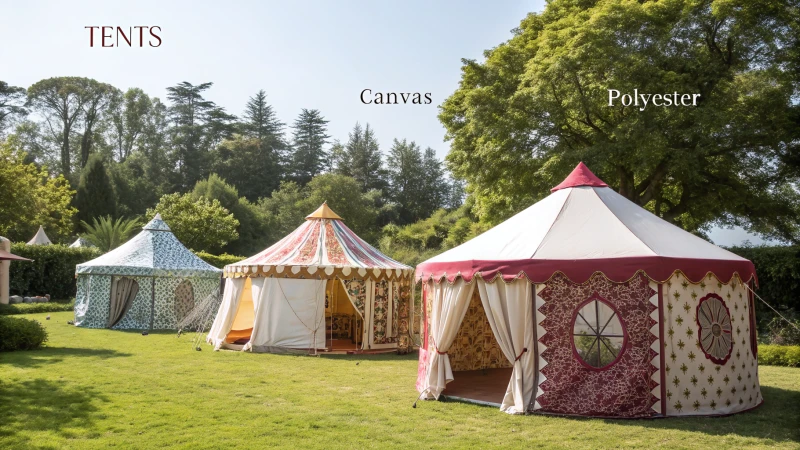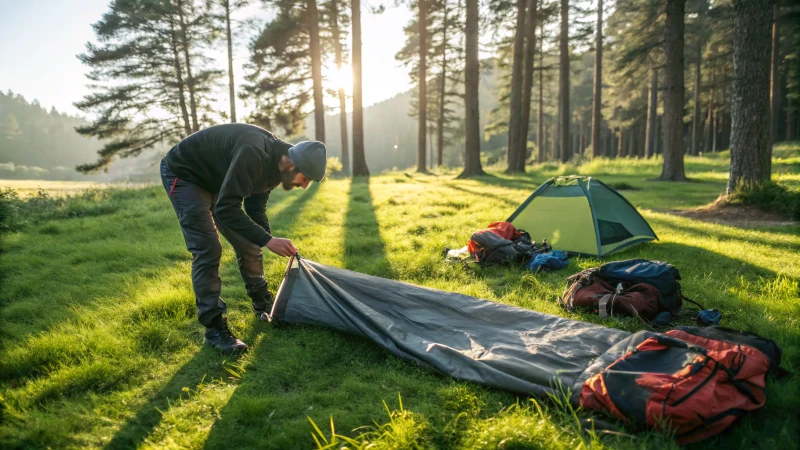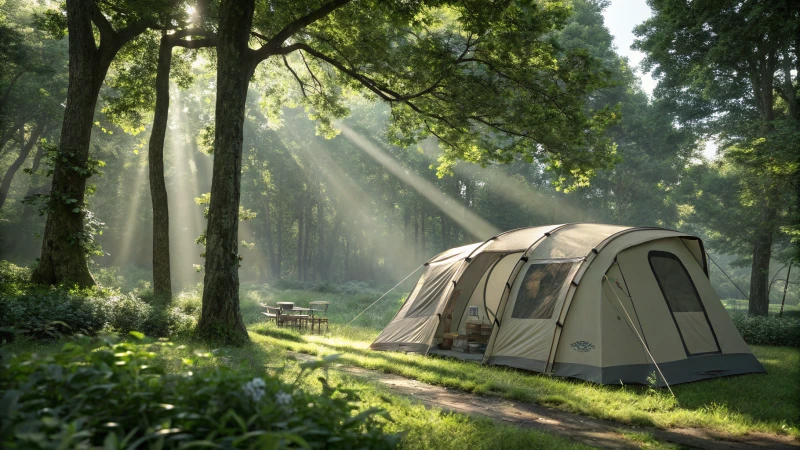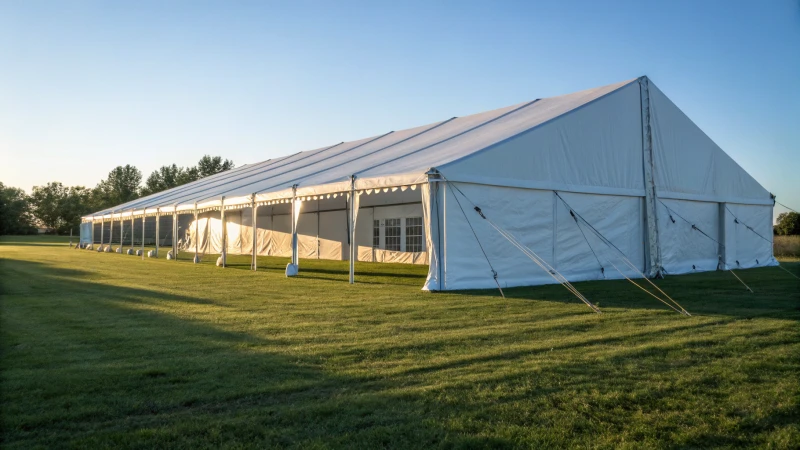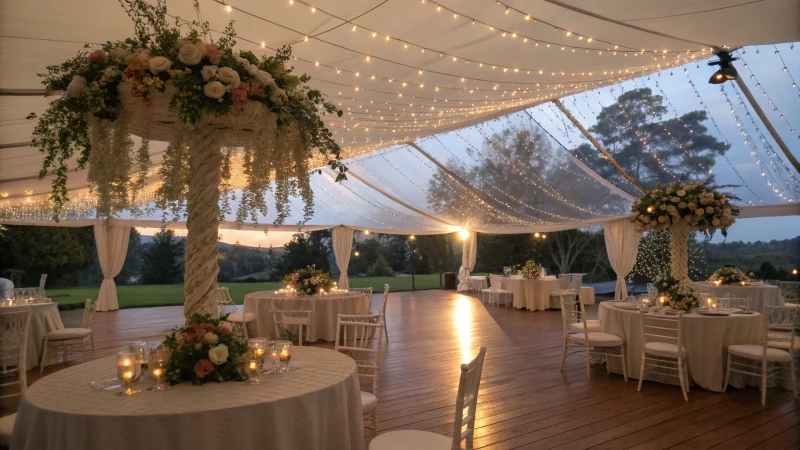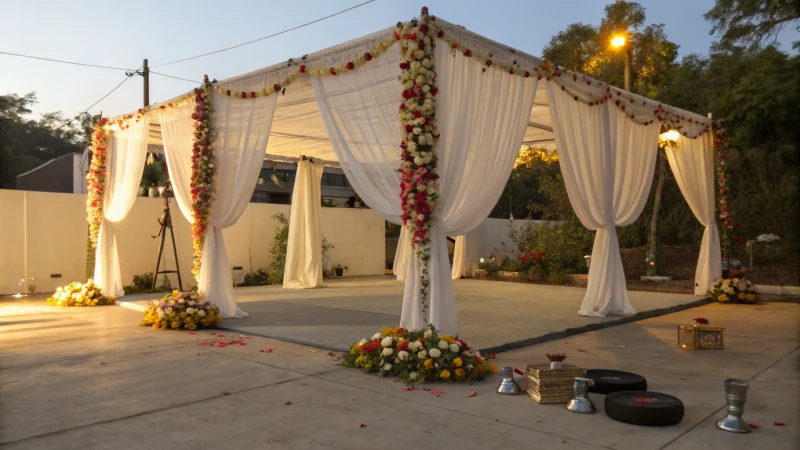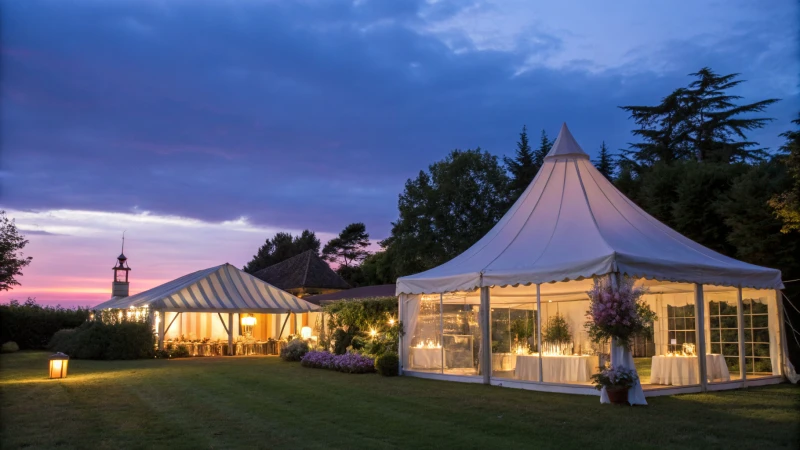
Choosing the right tent can make or break your event. Here’s my personal take on marquee versus frame tents.
Marquee tents, with their high-peaked elegance, are perfect for events focused on aesthetics, while frame tents provide a modern, unobstructed space ideal for practical needs.
I remember planning my sister’s wedding and debating between these two tent styles. The marquee tent had that fairy-tale look she dreamed of, with its graceful peaks and traditional charm. But when it came to my friend’s corporate event, the frame tent’s clear, open space was unbeatable for its functionality and ease of setup. Let’s dive into what sets these tents apart, from installation to cost considerations, so you can make the best choice for your event.
Marquee tents are more aesthetically pleasing than frame tents.True
Marquee tents have high-peaked roofs and traditional elegance, enhancing aesthetics.
Frame tents are harder to install than marquee tents.False
Frame tents offer easier installation due to their modern design and structure.
What Are the Design Differences Between Marquee and Frame Tents?
Have you ever found yourself torn between choosing a marquee or frame tent for your big event? It can feel like deciding between two equally charming friends for a dinner party!
Marquee tents, with their high-peaked roofs and poles, exude elegance and a traditional vibe. Meanwhile, frame tents offer a modern, spacious interior thanks to their freestanding design, making them ideal for maximizing space.
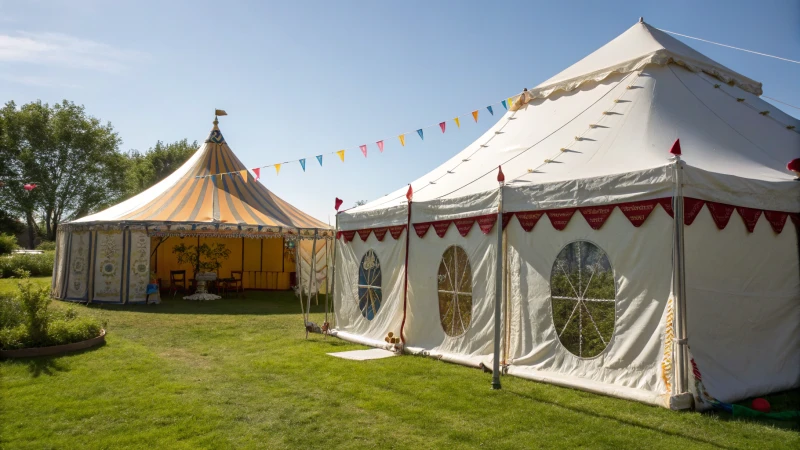
Structural Design
Thinking back to my sister’s wedding, the marquee tent we chose was like the crown jewel of the celebration. Its high-peaked roof, supported by poles and tensioned fabric, created an elegant, timeless setting that perfectly complemented her fairy-tale theme. We even played around with modular sections to create some stunning layouts.
On the other hand, during a bustling trade show last year, I opted for a frame tent. Its aluminum framework meant no pesky center poles, offering us a wide-open space to accommodate our displays without any obstructions. This freestanding design1 was crucial as we needed every inch of space.
| Feature | Marquee Tents | Frame Tents |
|---|---|---|
| Support System | Poles and tensioned fabric | Aluminum/steel frame |
| Roof Style | High-peaked | Flat/low profile |
Interior Space Utilization
I recall that under the marquee tent, while the center poles did add a certain charm to our decor, they also posed a bit of a challenge when arranging tables for my friend’s rustic barn-themed party. Yet, these structures added character and became part of the theme.
Conversely, the frame tent at our company’s annual picnic offered complete layout flexibility2. With no interior obstacles, we set up games and seating arrangements with ease, making the event feel open and welcoming.
Aesthetic Appeal
There’s something undeniably sophisticated about marquee tents; their high peaks create an ambiance that’s nothing short of grand. Perfect for weddings or upscale parties, they bring an air of elegance that’s hard to match.
Frame tents, however, have a sleek modern aesthetic that I find fits perfectly with corporate or practical events. Their clean lines make them adaptable to various themes, which is why they’re often my go-to for trade shows.
Setup and Installation
The setup for marquee tents can be quite the undertaking—staking and tensioning are needed, which makes them more suited for grassy fields or sandy beaches. I’ve learned this the hard way when trying to install one on hard pavement!
In contrast, frame tents are a breeze to set up. Being freestanding means they’re ideal for hard surfaces like concrete or asphalt. The ease of installation saved us hours during a festival setup in the city.
| Aspect | Marquee Tents | Frame Tents |
|---|---|---|
| Setup Requirement | Staking/tensioning | Freestanding |
| Setup Time | Longer | Quicker |
These design differences are pivotal in deciding which tent suits your event best. Whether you’re planning an elegant wedding or a large-scale trade show, understanding these nuances will help you choose the perfect temporary structure.
Marquee tents require staking for setup.True
Marquee tents need staking or tensioning to secure them, especially on soft surfaces.
Frame tents have center poles obstructing the interior.False
Frame tents use a freestanding design with no interior obstructions, maximizing space.
How Does the Interior Space Compare in Marquee and Frame Tents?
Ever wondered how the right tent can transform your event space into something magical?
Choosing between marquee and frame tents involves balancing aesthetics with practicality. Marquee tents bring traditional charm but have center poles that limit space, while frame tents offer a modern, unobstructed interior ideal for versatile layouts.
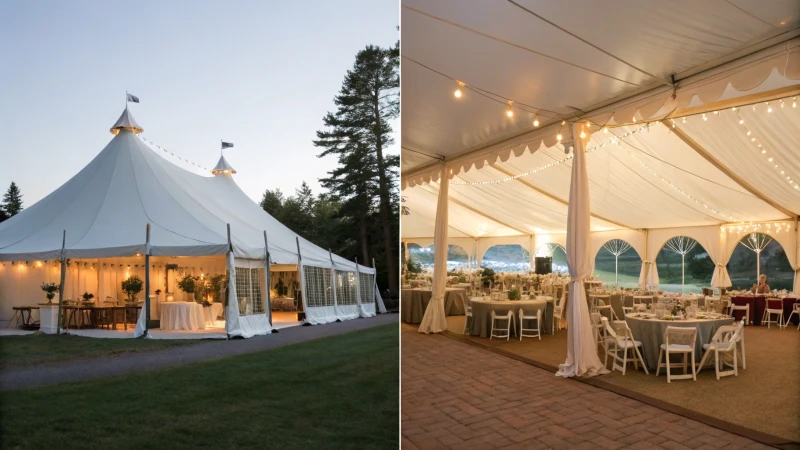
Comparing Interior Space Utilization
Marquee Tents: Charm with Compromise
Imagine planning a beautiful wedding under a marquee tent. I remember seeing one at a friend’s wedding, and it was like stepping into a fairytale with those elegant high peaks and charming center poles. But here’s the thing—those same poles that add charm can also be a bit of a headache. We had to creatively arrange the seating around them, which wasn’t easy, especially with a big guest list.
- Center Poles: These add a touch of nostalgia but can interfere with seating and staging plans.
- Layout Flexibility: You might find yourself doing a bit of creative problem-solving to make everything fit, especially for large gatherings.
Frame Tents: Maximal Usable Space
On the flip side, I once helped organize a corporate event using a frame tent. What a difference! The open, unobstructed interior was perfect for setting up a stage and arranging tables without any hurdles. It felt like we had all the room in the world to play with.
- Unobstructed Interior: With no poles in the way, you can easily create the perfect layout for your event, whether it’s a dance floor or a stage.
- Space Efficiency: Every inch of space is usable, making these tents ideal for corporate events3 where functionality is crucial.
Practical Considerations
When you’re choosing between marquee and frame tents, it really comes down to the type of event you’re planning:
| Aspect | Marquee Tents | Frame Tents |
|---|---|---|
| Center Poles | Present; can obstruct space | Absent; clear interior |
| Aesthetic Appeal | Traditional and elegant | Modern and sleek |
| Setup Flexibility | Limited due to poles | Highly adaptable |
Understanding these nuances can help you select the tent that aligns perfectly with your event’s needs and aesthetic desires. For more insights into optimizing tent spaces, dive into resources on event planning4 and make sure your setup is nothing short of perfect.
Marquee tents have center poles that obstruct space.True
Center poles in marquee tents can limit layout flexibility by obstructing space.
Frame tents require center poles for structural support.False
Frame tents use an aluminum or steel framework, eliminating the need for center poles.
Which Tent Type Is Easier to Set Up and Install?
Imagine planning a camping trip and the tent setup becomes a breeze. That’s the kind of experience you want, right?
Frame tents are typically easier to set up and install than marquee tents. Their freestanding design doesn’t require staking, making them perfect for hard surfaces like asphalt or concrete.
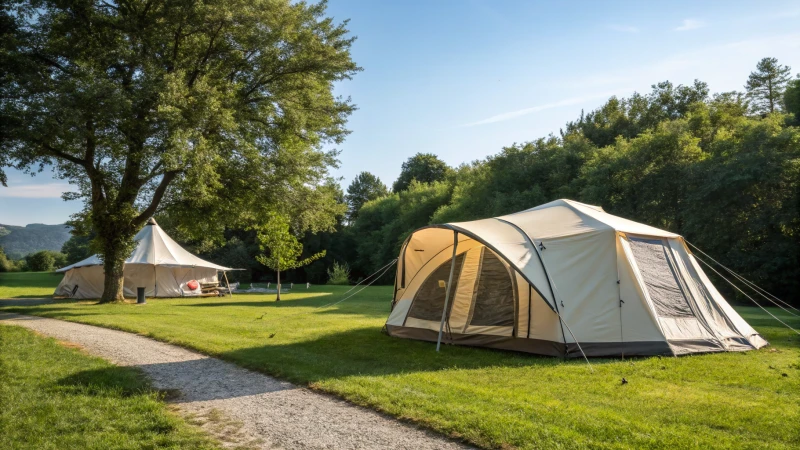
Frame Tents: Quick Setup and Versatility
I still remember the first time I set up a frame tent. It was during a family reunion, and we needed something sturdy yet simple. The aluminum frame snapped together smoothly, and within minutes, we had our shelter ready on the concrete driveway. There was no need to wrestle with stakes, which was a blessing as my brother and I were not exactly DIY experts. The unobstructed space inside made it perfect for our buffet tables and dancing area.
| Table: Frame Tent Features | Feature | Details |
|---|---|---|
| Design | Freestanding, no stakes | |
| Setup Time | Quick and easy | |
| Ideal Surfaces | Hard surfaces (e.g., asphalt) | |
| Interior | Clear, unobstructed interior space5 |
Marquee Tents: Elegant Yet Demanding
Marquee tents are indeed beautiful, almost like a scene from a fairy tale when they’re all set up. I helped a friend set one up for their wedding, and while the high-peaked roofs added an element of elegance, the process was anything but graceful. We spent hours driving stakes into the ground, hoping we didn’t misplace any of them. But when everything was finally in place, the look was nothing short of magical.
| Table: Marquee Tent Features | Feature | Details |
|---|---|---|
| Design | Tensioned with poles | |
| Setup Time | Longer, requires staking | |
| Ideal Surfaces | Soft surfaces (e.g., grass) | |
| Aesthetic Appeal | High peaks, elegant look |
Consider Your Event Needs
When you’re weighing your options, think about your event’s needs and location. Frame tents are fantastic if you need something quick and flexible. They’re like that trusty friend who’s always ready to jump in and help out. On the other hand, if you’re aiming for a sophisticated look that wows your guests, marquee tents are your go-to.
Tips for Easy Tent Setup
- Practice Before the Event: Give yourself a trial run before the big day. It’s like rehearsing a play—everything flows smoother when you know your lines.
- Follow Instructions: Manuals are your best friends in this scenario. Each piece has its place.
- Use the Right Tools: Keep tools handy—mallets for stakes or poles can save you a lot of hassle.
- Work as a Team: Call in reinforcements; sometimes extra hands make all the difference.
Balancing beauty with practicality is key. Understanding what each type offers can help you pick the right tent for your next adventure or celebration.
Frame tents require no stakes for setup.True
Frame tents are freestanding and don't need stakes, ideal for hard surfaces.
Marquee tents are quicker to set up than frame tents.False
Marquee tents need staking and tensioning, making setup longer than frame tents.
How Do Weather Conditions Affect Marquee and Frame Tents?
Ever hosted an outdoor event and wondered how the weather might play spoiler? Let’s delve into the world of marquee and frame tents, your allies against the elements.
Weather conditions affect marquee and frame tents by impacting their stability, water resistance, and temperature control. Ensuring proper setup and materials is key to withstanding wind, rain, and heat effectively.
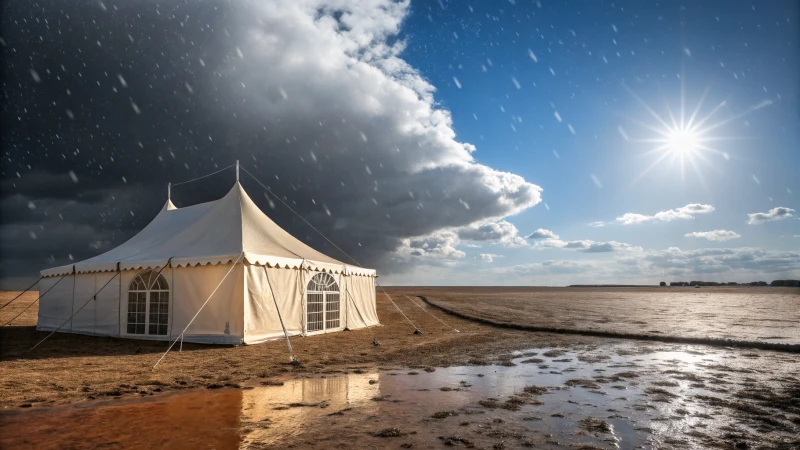
Impact of Wind on Tents
I remember a summer festival where we faced a sudden storm. Our marquee tent, with its high-peaked roof, swayed but stood firm thanks to well-secured stakes. Marquee tents like this rely heavily on tensioned fabric and poles, so they perform admirably in moderate winds. But when those strong gusts hit, even the best can struggle if not anchored properly.
Frame tents have a different story to tell. With their sturdy aluminum or steel frames, they handle high winds better. I’ve seen them hold their ground on hard surfaces where staking isn’t an option, thanks to additional weights that boost their stability.
Coping with Rainfall
Rainy days at events can be both a blessing and a curse. I’ve watched water cascade down the pitched roofs of marquee tents, feeling relieved as it efficiently runs off, avoiding those dreaded pools that lead to leaks. However, keeping seams and fabric in top shape is crucial to fend off seepage.
Frame tents, crafted from tough, waterproof materials, offer peace of mind. Their design is smartly crafted to prevent water accumulation. Once, during a wedding setup, ensuring proper drainage around the tent saved us from potential flooding mishaps.
Temperature Fluctuations and Sun Exposure
One scorching afternoon, I found myself grateful for the open sides of our marquee tent—it was like nature’s air conditioning. These tents excel in hot climates with their natural ventilation.
Meanwhile, frame tents can be equally accommodating. They allow for sidewalls that provide extra insulation, making temperature control a breeze. Opting for materials with UV protection is wise to shield against sun damage—something I’ve learned firsthand after seeing sun-faded decor.
Preparing for Extreme Weather Conditions
In unpredictable climates, every event planner’s best friend is preparation. Checking weather forecasts religiously has saved my skin more than once. Both marquee and frame tents need careful setup and constant monitoring when Mother Nature gets feisty.
It’s worth considering weather-specific precautions6 like reinforced structures or additional anchoring systems. These steps are vital for safety when the forecast looks grim.
| Weather Factor | Marquee Tents | Frame Tents |
|---|---|---|
| Wind Resistance | Moderate | High |
| Water Runoff | Excellent | Good |
| Temperature Control | Good Ventilation | Insulated Options |
| Sun Protection | Moderate | High UV Protection |
Best Practices for Tent Setup
Following manufacturer guidelines7 is something I always emphasize to my team. It’s not just about ticking boxes; it’s about ensuring stability in any weather.
Regular maintenance is also key—keeping tent materials in prime condition enhances their durability against the elements. From my experience, knowing local weather patterns can guide you in choosing between marquee and frame tents for specific events. Understanding seasonal weather8 helps make these decisions easier and more informed.
Marquee tents are more stable than frame tents in high winds.False
Frame tents have robust frames offering better stability in high winds.
Frame tents require staking to remain stable on hard surfaces.False
Frame tents do not require staking and are ideal for hard surfaces.
Conclusion
Marquee tents offer elegance and charm, ideal for upscale events, while frame tents provide modern functionality and unobstructed space, making them suitable for practical gatherings.
-
This link explains how frame tents optimize interior space by eliminating poles. ↩
-
Learn about the advantages of frame tents in providing adaptable interior setups. ↩
-
Learn how frame tents can be used for corporate events, offering flexible layouts that accommodate various installations. ↩
-
Gain insights into maximizing tent space for events through effective planning strategies and layout tips. ↩
-
Learn about the benefits of frame tents, including their ease of setup and versatile design. ↩
-
Learn tailored strategies to strengthen tents against specific weather threats. ↩
-
Access detailed instructions to optimize tent safety and stability. ↩
-
Plan events with insights into typical weather conditions throughout the year. ↩


